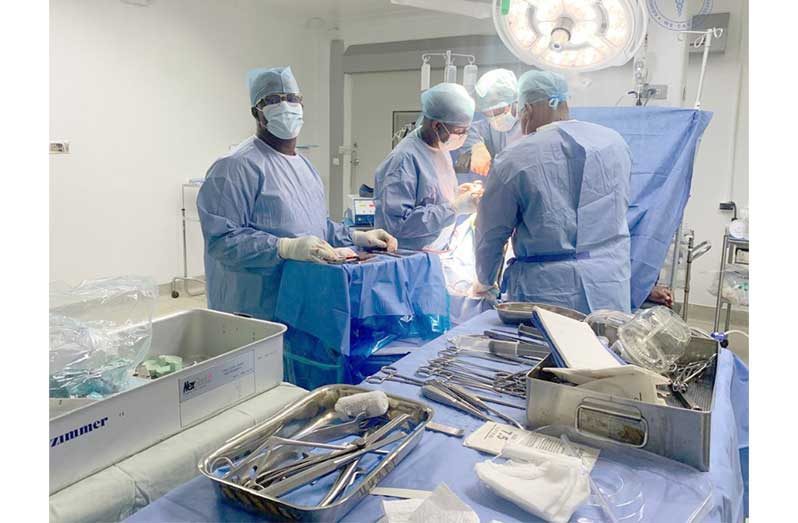THE Georgetown Public Hospital Corporation (GPHC) has achieved a major milestone in healthcare with the introduction of arthroscopic technology, marking a new era in orthopaedic surgery for patients in Guyana.
Through a partnership with the Health and Education Relief Organisation (HERO), GPHC can now offer minimally invasive procedures such as anterior cruciate ligament (ACL) reconstructions, rotator cuff repairs, meniscal repairs, and labral tear surgeries locally. This advancement eliminates the need for patients to travel abroad for specialised care, significantly reducing costs while improving recovery outcomes.
Since its launch, GPHC has already completed 19 arthroscopic procedures along with eight supportive surgeries. Arthroscopy, a minimally invasive technique that uses a small camera inserted into a joint, allows surgeons to diagnose and treat conditions through tiny incisions. Compared to traditional open surgeries, it offers patients less pain, lower risk of infection, and faster recovery.
Orthopaedic Surgeon with HERO, Dr. Rory Lewis, explained in a GPHC-produced video that the new technology makes it possible to perform surgeries through “micro incisions,” achieving the same results as larger open procedures but with greater patient benefits. He noted that the team has successfully conducted multiple knee surgeries, including ACL reconstructions and meniscal repairs.
HERO Orthopaedic Surgeon, Dr. Ronald Chase, emphasised the significance of the equipment being available locally. “Now that the equipment is here, there is a way for us to treat patients in Guyana, helping them to get better and resume their lives,” he said.
Dr. Chase also highlighted the collaborative training element of the initiative, pointing out that the HERO team is working closely with GPHC’s local surgeons and residents. “We are training them as we do the surgeries; we are teaching them what to do and how they can accomplish the same goals. Hopefully, they’ll pick up the same experience as they go along,” he explained.
He acknowledged that while there is a long learning curve with arthroscopic procedures, the cooperation and commitment of the local team—residents, attendings, and administrative staff—have been encouraging. “Once that continues, we’ll be able to do much more,” he added.
With this advancement, Guyana has taken an important step in expanding access to world-class orthopaedic care, ensuring patients can benefit from cutting-edge technology without leaving the country.



.jpg)









